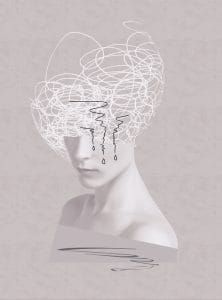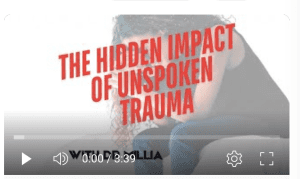Trauma Resources
Summary
Experience: This page reflects clinical experience working with adults who live with the long-term effects of trauma, often without recognising their symptoms as trauma-related. Many people describe persistent anxiety, emotional numbness, shame, relationship difficulties, or a sense of being constantly on edge, even when life appears outwardly stable.
Expertise: The page explains how trauma can affect the nervous system, emotional regulation, memory, and sense of self, leading to a wide range of psychological and physical symptoms. It highlights that trauma responses are adaptive survival mechanisms rather than signs of weakness, and that symptoms can emerge long after the original experiences.
Professional authority: Dr. Millia Begum is a trained trauma specialist with over 25 years of clinical experience in psychiatry and therapy. She trained in the UK’s NHS system and served the NHS in various senior roles. She is a former EMDR Europe Approved Consultant, EMDR researcher, and board member of the EMDR Association UK. She is now a member of the EMDR International Association (EMDRIA). Dr. Millia is a Certified Internal Family Systems (IFS) Therapist, bringing a compassionate, parts-informed approach to her work with clients in Dubai.
Trust and care standards: The page avoids pathologising language and does not assume a single diagnosis or cause. It emphasises careful assessment, individual formulation, and compassionate understanding rather than self-diagnosis or symptom checklists used in isolation.
Hidden Symptoms of Trauma – Key Takeaways
- Trauma is not always obvious—it can show up as anxiety, depression, panic attacks, shame, or chronic pain.
- Dissociation, trust issues, or relationship struggles may reflect unresolved trauma.
- Many people dismiss these symptoms, unaware they connect to past experiences.
- Healing comes from addressing the root cause, not just managing symptoms.
- Dr Millia offers a range of evidence-based therapies, such as Internal Family Systems therapy and EMDR therapy, that can resolve trauma safely and deeply.
What Is Psychological Trauma?
Psychological trauma happens when an experience feels too overwhelming for us to cope with. It isn’t only about big events like war, natural disasters, or accidents. Trauma can also come from painful childhood experiences, difficult relationships, bullying, neglect, or even repeated stress in adult life.
What makes something traumatic is not just what happened, but also from the imprints they have left on us. Traumatic experiences changes the way we view ourselves, our sense of safety, our relationships, or our place in the world.
Trauma often lingers in the nervous system. We might feel on edge, disconnected, or stuck in survival mode long after the event is over.
Sources:
🔹 National Institute of Mental Health (NIMH)—Trauma
🔹 American Psychological Association (APA) Dictionary of Psychology — Psychological Trauma
What Are the Symptoms of Trauma?
Symptoms of trauma are many. If you are in active danger of harm in your current life, you may experience high levels of anxiety, hypervigilance, startling reactions, constantly being on edge and not get a restful sleep. If you are in imminent danger, please contact the emergency services for immediate protection.
For those who have experienced trauma in the past, or recent times but continue to live in anxiety, they may wish to assess for post-traumatic stress disorder (PTSD) or complex PTSD (C-PTSD).
One may experience a wide range of symptoms that reflect the mind and body’s struggle to cope with past events:
- Recurrent intrusive memories of past experiences (replaying and recounting)
- Vivid snippets and images called flashbacks
- Ongoing anxiety, irritability, or rage
- Sleep disturbances, muscle tension, and unexplained bodily pain
- Avoidance of reminders and social isolation
- Hypervigilance — scanning for danger and struggling with trust and safety
- Emotional distancing or avoiding closeness with others
- Feelings of shame, diminished self-worth, or inadequacy
- Depression, panic attacks, and anxiety tied to unresolved trauma, grief, and loss
If you recognize some of these patterns in your life, talking things out may or may not help. The symptoms mag need support from a professional experienced in trauma therapies.
Sources:
🔹 National Institute of Mental Health (NIMH) — PTSD
What Are the Types of Trauma?
Trauma is not limited to dramatic events like accidents or disasters. It can arise from many different life experiences, shaping how we see ourselves, others, and the world. Common types include:
- Childhood neglect / attachment trauma — lack of emotional attunement or safety in early years
- Complex PTSD — effects of ongoing abuse, violence, or chronic stress
- Physical, sexual, or emotional abuse — experiences that overwhelm safety and trust
- Medical trauma — ICU stays, misdiagnoses, painful or invasive procedures
- Narcissistic or relational trauma — emotional harm in toxic or manipulative relationships
- Grief-related trauma — sudden or devastating loss of a loved one
- Migration or cultural displacement trauma — loss of home, community, or identity
- Intergenerational trauma — patterns of trauma passed across family lines and generations
Sources:
🔹 National Institute of Mental Health (NIMH) — Trauma
🔹 American Psychological Association (APA) — Trauma
What Are Triggers from Unresolved Trauma?
When trauma is unresolved, the body and mind can react strongly to certain reminders—called triggers. These triggers can make a person feel as if the past experience is happening all over again, leading to sudden emotional or physical distress.
- Emotional triggers — rejection, criticism, disrespect, or feeling ignored
- Somatic triggers — body language, tone of voice, or sudden physiological responses
- Sensory triggers — smells, sounds, touch, or internal sensations that recall the trauma
- Circumstantial triggers — certain places, times of year, or specific situations
For example, unfair treatment at work may stir feelings linked to past experiences of being silenced, while hearing news about abuse can provoke strong emotional or bodily reactions rooted in earlier trauma.
Sources:
🔹 National Institute of Mental Health (NIMH) — Trauma
🔹 American Psychological Association (APA) — Trigger
What Is Attachment Trauma?
Attachment is a deep sense of safety, belonging, and care that children experience from caregivers who are consistent, attuned, and responsive to the child’s needs. This secure bond allows a child to grow into their authentic Self with confidence.
Attachment trauma emerges in a child who grows up in dual realities of contending the need of their parents’ love and protection, yet at the same time feeling unsafe, unseen, or unable to be their true self.
To survive, the child develops protective roles or “emotional armors.” As adults, these survival strategies continue to shape how they view their self and others.
These patterns may look like people-pleasing, shutting down emotions, avoiding closeness, or carrying an inner sense of shame.
Healing attachment trauma is possible withtrauma-informed therapies such as Internal Family Systems (IFS) or EMDR.
Sources:
🔹 American Psychological Association (APA) — Attachment
🔹 National Child Traumatic Stress Network (NCTSN) — Early Childhood Trauma

What is Dissociation?
Dissociation is the mind’s way of protecting us when life feels overwhelming. It can feel like being disconnected from your body, emotions, or surroundings. Short episodes (like daydreaming) are common, but frequent dissociation may signal unresolved trauma. Source: APA

Signs of Dissociation
• Feeling “zoned out” or dreamlike
• Gaps in memory / time skipping
• Watching yourself from outside
• Going emotionally numb under stress
• Struggling to feel connected to body or world Source: NIMH

Dissociation and Complex Trauma
Dissociation is a common response in complex trauma, where repeated or ongoing stress overwhelms the nervous system. To survive, the mind learns to disconnect from unbearable feelings, memories, or even parts of the Self. This response may have protected you in the past, but over time it can leave you feeling numb, fragmented, or disconnected in daily life. Source: NIMH · APA
Many therapies can help heal trauma. Each works in a different way, and the best fit depends on your unique story and needs. Here’s a comparison of key approaches:
- EMDR (Eye Movement Desensitization and Reprocessing) — Uses eye movements or bilateral stimulation to help the brain reprocess traumatic memories so they feel less overwhelming.
- IFS (Internal Family Systems) — Helps you connect with and heal protective and wounded “parts” of yourself, guided by the calm, compassionate Self.
- DBR (Deep Brain Reorienting) — Works with deep brain and body responses linked to attachment shocks and trauma stored below conscious awareness.
- Sensorimotor Psychotherapy — Integrates body awareness with talk therapy, helping release trauma stored in posture, movement, and sensations.
- Somatic Experiencing — Focuses on regulating the nervous system and gradually releasing stuck survival responses (fight, flight, freeze) from past trauma.
Conclusion
Trauma can take many shapes—from childhood neglect to medical trauma, grief, or ongoing stress. Its effects often remain hidden, showing up as anxiety, panic attacks, depression, dissociation, or difficulties in relationships. The good news is that trauma is treatable, and healing is possible.
By choosing the right therapy, such as Internal Family Systems (IFS) or Eye Movement Desensitization and Reprocessing (EMDR), you can work through the root causes of trauma without re-traumatization. Healing does not mean forgetting the past — it means reclaiming your safety, confidence, and connection to yourself and others.
If you recognize yourself in these descriptions, know that you are not alone. With compassionate support and trauma-informed care, it is possible to move from survival patterns toward resilience, wholeness, and a renewed sense of self.
Trauma – Short Answers to Common Questions
Why do I carry so much fear?
Fear is often a nervous system response shaped by past threat, not a personality flaw. This fear is commonly seen in psychological trauma and attachment wounds.
Why do I feel so much shame?
Shame develops when overwhelming experiences are turned inward. It is a core feature of attachment trauma and emotionally abusive relationships.
Can trauma be healed?
Yes—trauma can be healed at the level of the nervous system. Approaches such as Internal Family Systems (IFS) therapy and EMDR therapy help memories lose their emotional charge.
Why can’t I get past my trauma?
Trauma is stored as body memory, not just thoughts. This is why symptoms like dissociation, anxiety, or emotional shutdown can persist despite insight.
How do you heal from narcissistic trauma?
Narcissistic trauma involves chronic invalidation and loss of self-trust. Healing focuses on safety, boundaries, and repairing shame, as explored in narcissistic abuse recovery.
Does talk therapy work for trauma?
Insight is helpful, but trauma often requires approaches that work beyond talking. This is why trauma-informed therapy integrates body, emotion, and memory.
Can I ever move on from the past?
Healing does not mean forgetting. It means the past no longer controls the present—a core aim of effective trauma treatment.
📞 Contact Dr. Millia
If you would like to book a consultation or learn more about services, please get in touch:
- Clinic: First Psychiatry Clinic
- Address: 975 Al Wasl Road, Dubai, UAE
- Phone: +971 55 355 7855
- Email: info@milliabegum.ae
- Website: milliabegum.ae
